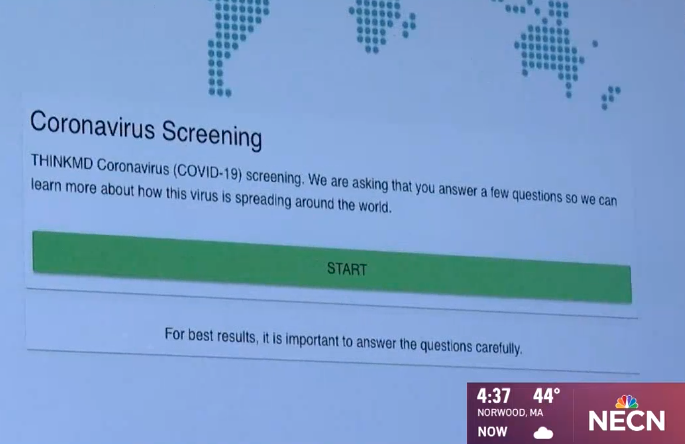Written/Filmed by Jack Thurston of NECN, March 6, 2020
Technology companies say they have a role to play in the world’s response to the growing threat from coronavirus.
“There’s an opportunity here to really help,” said Ethan Bechtel, the CEO of OhMD.
OhMD, which operates out of the Vermont Center for Emerging Technologies in Burlington, provides a secure and private way for patients to text their doctor’s office or other health care provider.
“Texting is what people are used to,” Bechtel said, describing it as a key way he sees people communicating with their care providers in the future.
In this era of coronavirus, Bechtel said texting is another way to achieve what’s known as social distancing.
For example, a nurse could text a patient who had traveled overseas and had concerning symptoms to tell them to stay away from others, Bechtel said. The text could point such a person to a private space for an exam, instead of having them go into a crowded waiting room, he added.
“You need a way to communicate with these patients and keep them healthy, and prevent the spread,” the company’s co-founder said, adding that he believes text messages are often checked more than voicemails or emails.
Much of the response to the emerging cases of coronavirus around the country has been from the medical community and from state and federal governments, but tech companies also can contribute to addressing medical emergencies, three in Burlington said Friday.
Also located in VCET’s incubator space, Paul Dandurand’s company, Pie, provides tools that help businesses break down big projects into manageable plans with action steps and deadlines.
Dandurand’s now offering a free employer preparedness tool, which puts CDC guidelines on the new coronavirus into a format that works for offices.
“We don’t provide the answers,” Dandurand said in response to a remark from NECN and NBC10 Boston that many businesses likely have questions about how coronavirus could impact their workplaces. “We grab the answers that the CDC site is providing, and basically make it an easier way to consume it and execute on it.”
Dr. Barry Finette is a University of Vermont Medical Center pediatrician and also the CEO of ThinkMD. That startup uses smartphones to boost access to health care info around the world, he explained.
“All the governments and health care responses have to be guided by data,” Finette said.
ThinkMD has tools for clinical workers and laypeople alike that can help guide decisions around treatment.
A demo Finette showed NECN and NBC10 Boston asked a series of questions to figure out if someone worried about coronavirus should seek treatment.
“It basically transforms how a doctor does an examination and puts it in the hands of anybody to use,” Finette said, describing the demonstration of the ThinkMD product.
Finette said with any digital approach to health, trustworthy, accurate information must be key.
That guiding principle is something the startups and others in the tech space will need to embrace for coronavirus and any future challenges to come.
As of March 6, Vermont had no positive tests for coronavirus, according to the Vermont Department of Health.
However, VDH and Gov. Phil Scott, R-Vermont, have said they expect the illness to show up here, so they want Vermonters to stay informed and take preventative measures.
The health department has a section of its website dedicated to sharing information and updates on the disease.

